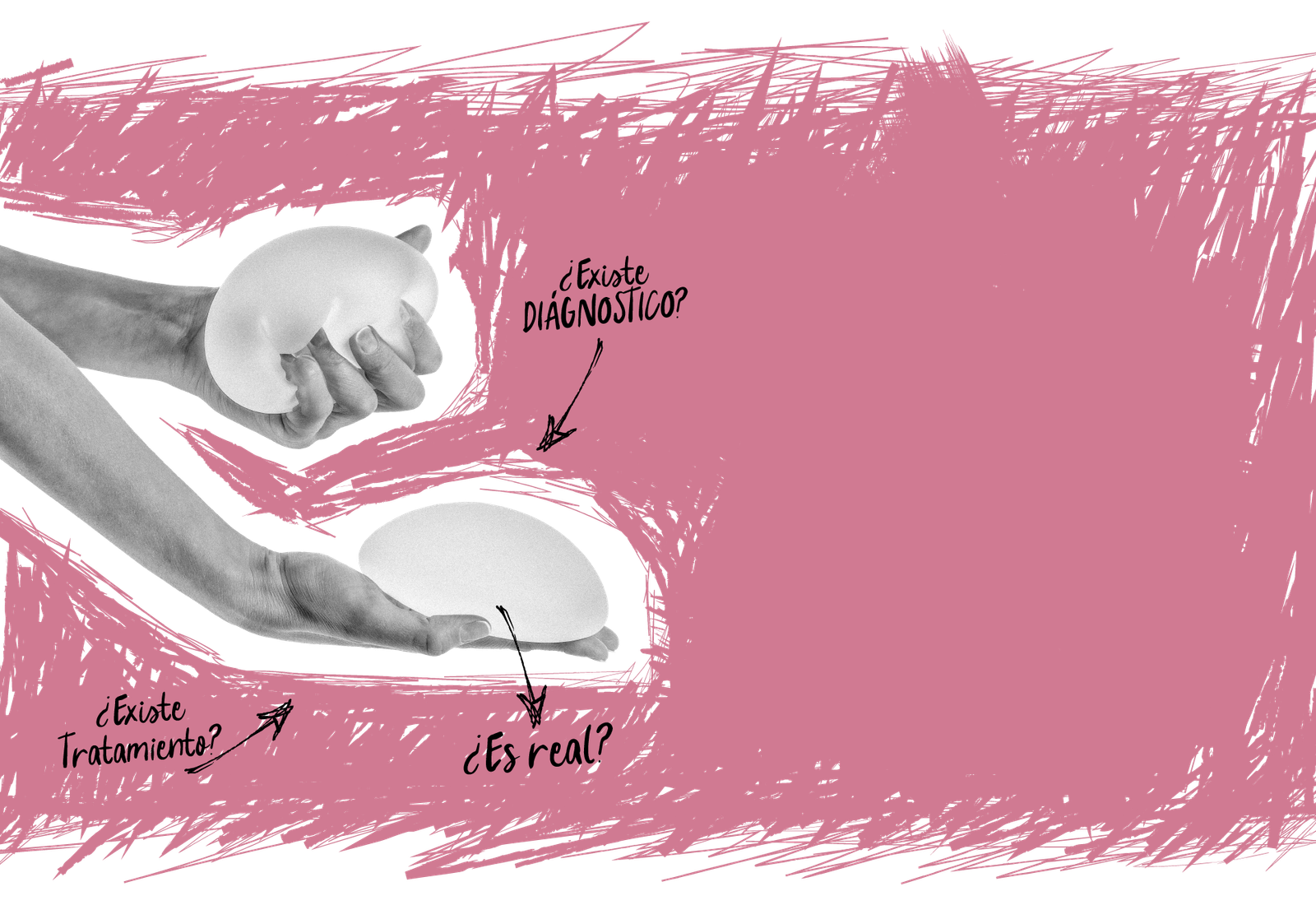




El término “enfermedad por implantes mamarios (BII)” hace referencia a una amplia variedad de síntomas que se presentan en algunas personas que se han sometido a procedimientos de reconstrucción o aumento estético con implantes mamarios. La BII no es un diagnóstico médico oficial porque aún no se la conoce bien. Sin embargo, algunos expertos creen que los síntomas de la BII pueden deberse a una reacción inflamatoria o autoinmunitaria a los implantes.
The BII can affect people that have any type of breast implant, including implants with silicone gel or saline solution, the surface smooth or textured, and round or drop-shaped. The BII can occur with implants that have been broken or that remain intact.
La BII es diferente a los tipos poco frecuentes de cáncer que pueden aparecer en el tejido cicatricial y en el líquido alrededor de un implante mamario, como el linfoma anaplásico de células grandes asociado a implantes mamarios (LACG-AIM), otros tipos de linfomas y el carcinoma de células escamosas asociado a implantes mamarios (CCE-AIM).



The disease for breast implants (BII) affects everyone differently. The symptoms and signs of the disease for breast implants may include:

Dolores Articulares
Dolores Muscular
Fatiga Crónica
Problemas De Concentración
Pérdida de Memoria
Problemas Respiratorios
Alteraciones Del Sueño
Erupciones Cutáneas
Problemas En La Piel
Ojos Y Boca Seca
Anxiety
Depression
Dolores De Cabeza
Pérdida Del Cabello
Problemas Gastrointestinales
The symptoms of the disease for breast implants may be submitted at any time after the implant surgery. Some people show symptoms immediately, while others suffer from them years later.

Además de la BII, otro riesgo grave es el linfoma anaplásico de células grandes asociado a implantes mamarios (LACG-AIM), una forma inusual de cáncer del sistema inmunitario. Este linfoma se forma en el tejido cicatricial y el líquido que rodea al implante. Hasta ahora, todos los casos confirmados de LACG-AIM han ocurrido en mujeres con implantes mamarios de superficie texturizada o desconocida.
Algunas pacientes activistas califican el LACG-AIM como un «cáncer artificial» debido a su vínculo con un dispositivo médico específico, identificado por primera vez en 1997.
“La seguridad de los implantes mamarios es un tema candente con muchas incógnitas y mucho en juego”, dice la Dra. Sophie Bartsich, FACS, cirujana plástica y profesora clínica adjunta de cirugía en el Centro Médico New York-Presbyterian/Weill Cornell.
“Es importante que haya más debate para que las personas conozcan la BII y el LACG-AIM, las diferencias entre estas enfermedades y los factores de riesgo de cada afección. Actualmente, hay mucha confusión y miedo”.
Esta información es proporcionada por Breastcancer.org


El Síndrome de ASIA (Síndrome Autoinmune/inflamatorio Inducido por Adyuvantes) es una patología relativamente nueva, propuesta por primera vez en 2011 por los investigadores Yehuda Shoenfeld y Nancy Agmon-Levin. Esta condición abarca un grupo de enfermedades mediadas por una reacción inmunológica secundaria a la exposición a adyuvantes, como la silicona utilizada en implantes mamarios. Los múltiples síntomas generados suelen remitir una vez que el agente causal es retirado.
Diagnosis of the Syndrome of ASIA: The diagnosis of the Syndrome of ASIA is made to meet two major criteria or one major and two minors, according to the parameters established by the experts.
Epidemiology: En 2017, Colombia ocupó el puesto número 11 a nivel mundial en procedimientos estéticos, representando el 2.1% de estos procedimientos, entre los cuales se incluye la mamoplastia de aumento con implantes mamarios. En años recientes, se ha observado una asociación entre la exposición a silicona y la aparición de enfermedades autoinmunes.


Después de la explantación, algunas mujeres pueden requerir tratamientos adicionales para manejar cualquier complicación o síntoma residual. Esto puede incluir fisioterapia, manejo del dolor, terapia psicológica y seguimiento médico regular. Es importante discutir un plan de recuperación con tu médico.
